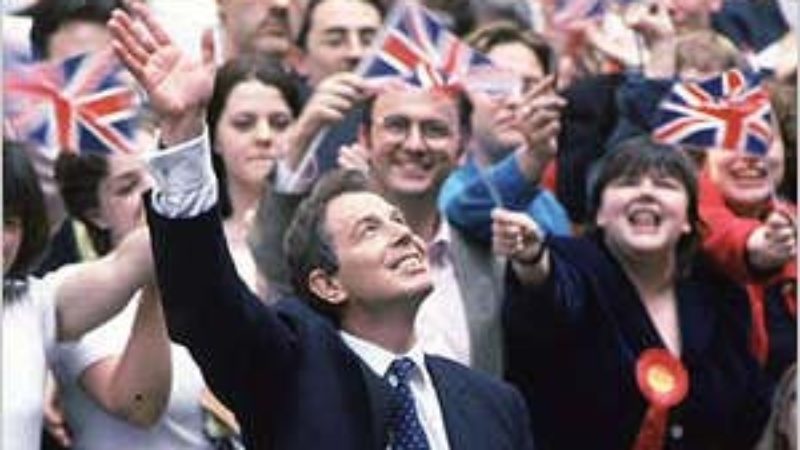
Speaking recently Claire Ainsley, Labour’s former Policy Director whose seminal book “The New Working Class” identified the voters lost to Labour between 2010 and 2020 issued this call: “I think Labour have to excite people to motivate them to vote because so many people just feel fed up over the last years of what they’ve seen go on.”
As Tom Baldwin makes clear in his detailed new biography of the Labour leader “excitement” is not a word found in Sir Keir Starmer’s political campaigning lexicon.
Is Keir Starmer capable of being exciting?
Yet on the same day as I read Ms Ainsley’s appeal, one of Britain’s most senior diplomats, now retired, sent me an email “I’ve read some political diaries from the period (Chris Mullin, Alistair Campbell and the Master himself).
None of them convey the sense of excitement and optimism which pervaded the civil service, and indeed much of the country as a whole, in those early years.”
Every day as an MP and minister I recorded a diary of what I heard, saw, said in the House of Commons and the two ministries I worked in – the Foreign Office and No 10 itself on European issues.
The early Blair years were pervaded with genuine optimism
There’s a total of 2.2 million words all contemporaneous and transcribed after dictation the same evening or at weekends in my consitutuency. I have just brought extracts covering the first Blair government 1997-2001.
Preparing them for publication I had forgotten just how many exciting things Labour did in that first term before the vote in the Commons to go to war in Iraq in Blair’s second term became, alas, the defining memory of his decade as prime minister.
Under the Tories 1979-1997 there had been a huge pile up of ignored problems crying out for reform which had been suppressed.
Giant campaigns had mobilised different elements of civil and economic society but were all brushed away as whining by the chattering classes or special interests.
MPs were conscious of the need to modernise Britain
Labour MPs who had emerged from the these new movements however were conscious of their importance and nudged hard to get the cautious Blair-Brown-Mandelson triumvirate to include them in the manifesto.
So from day one of the 1997 Labour administration it was able to hit the ground running with broadly progressive reforms that had widespread support and made the Tories look out-of-touch under William Hague their new young leader as he opposed them all.
The reforms ranged from major constitutional changes like a parliament for Scotland, a devolved assembly for Wales, and restoring a Mayor for London after bureaucratic direct rule by Whitehall and above all the Good Friday peace agreement.
From sure start to cracking down on fox hunting
Then there was the abolition of Tory homophobic legislation. Several Tory MPs were able to come out as gay. Abolishing hereditary peers making laws and their favourite sport, fox-hunting, or giving the Bank of England independence to set interest rates were overdue modernisations.
More important for families was the Sure Start scheme to provide breakfast at schools for 5 year olds. Many families were so poor as they are again today they could not afford to feed children properly.
20,000 new uniformed community police officers appeared on streets and anti-social behaviour orders targeted the yobs who made life misery in poorer, non-Tory towns and city suburbs.
Labour set up DfID to respond to the Drop the Debt type campaigns and successfully campaigned for the creation of the International Criminal Court.
Both at home and internationally Labour championed progressivism
Tony Blair and Robin Cook put together a coalition that finally ended the decade of Balkans war with ethnic cleansing, Serb atrocities including the Nazi style mass murder in cold blood of 8,000 European Muslims at Srebrenica. The Serb autocrat Slobodan Milosevic was taken in an RAF plane to the Hague to stand trial.
After year of disdain and scorn for partnership in Europe Tony Blair engaged fully with the EU, signing the European Social Charter of workplace rights which was more symbolic than a real add to trade union power but after two decades of workers and unions being treated as lepers by Margaret Thatcher and John Major it was a move that eased workplace tensions.
Politics needs a dash of colour
The point about most of these measures is that they were cost-free or relatively low cost.
Voters liked both the promise and the delivery and in consequence Labour won big both in 1997 and then again in 2001.
2024 is not 1997. Labour offers itself as repair party seeking to put right Broken Britain. But politics needs a dash of colour and a little excitement as well as prosaic reassurance that business need fear nothing from a Labour government. Where is it to be found?




More from LabourList
Government abandons plans to delay 30 local elections in England
‘The cost of living crisis is still Britain’s defining political challenge’
‘Nurses are finally getting the recognition they deserve’